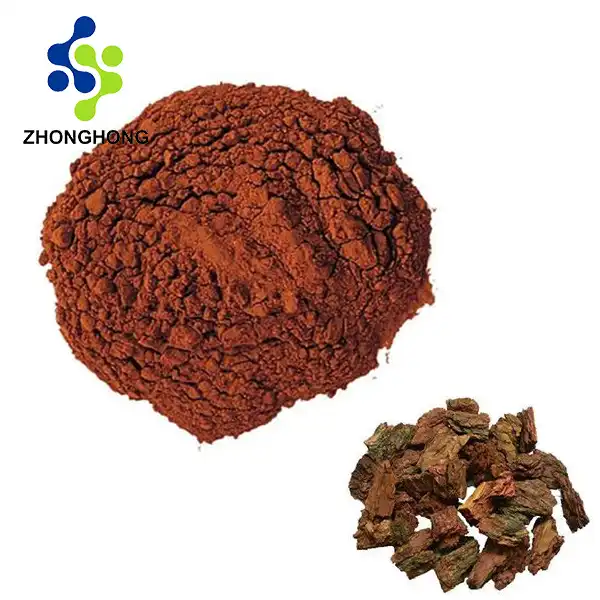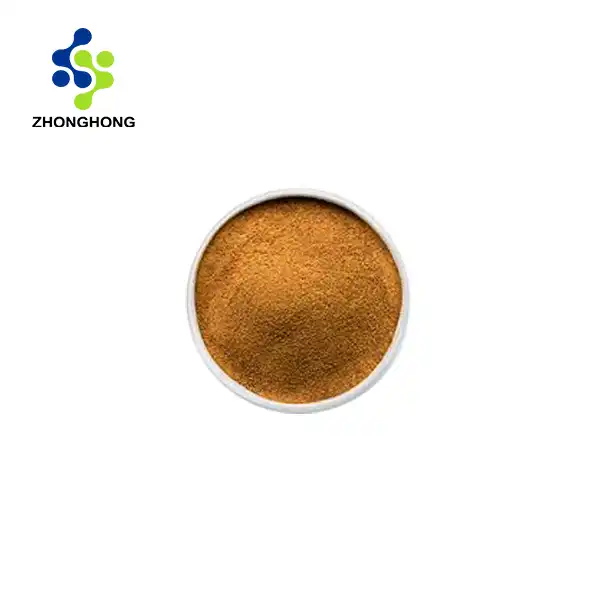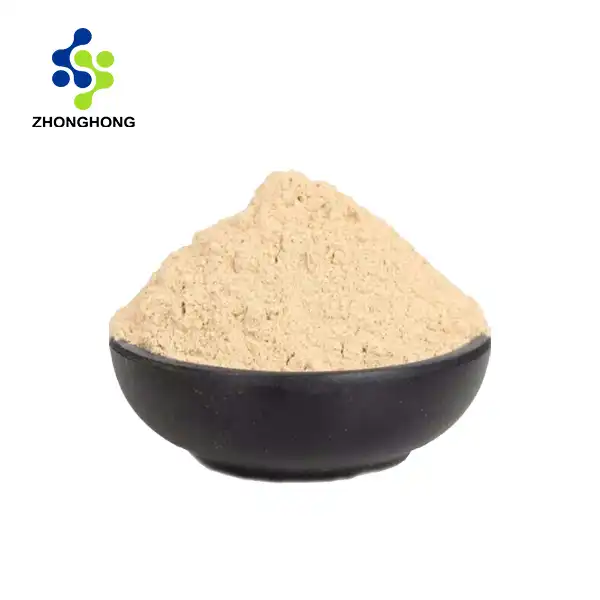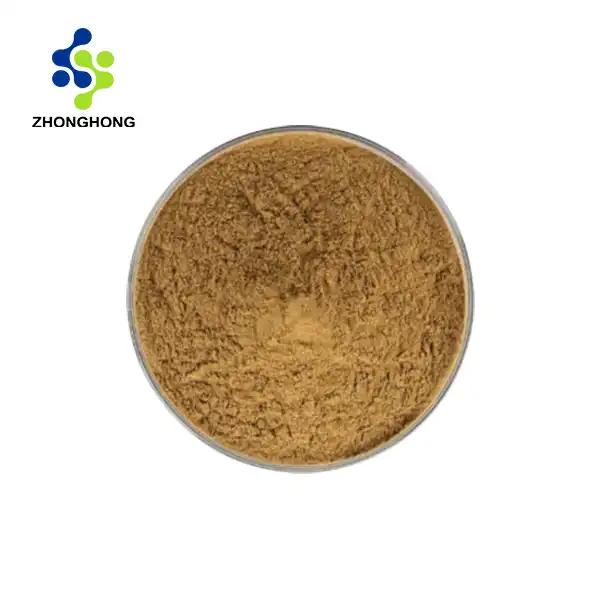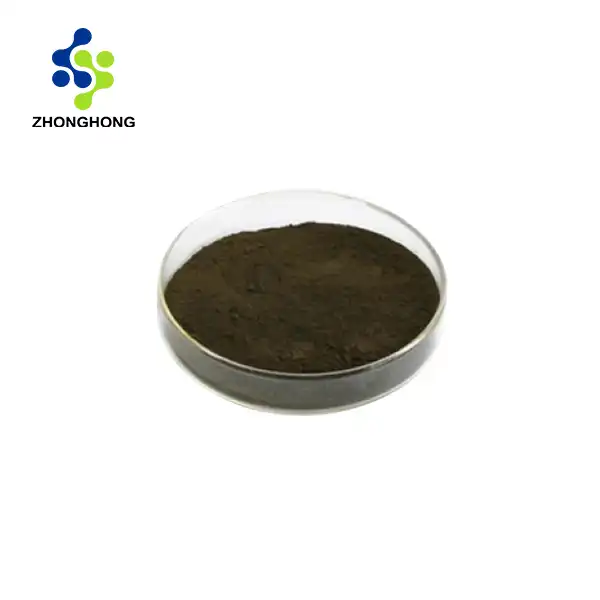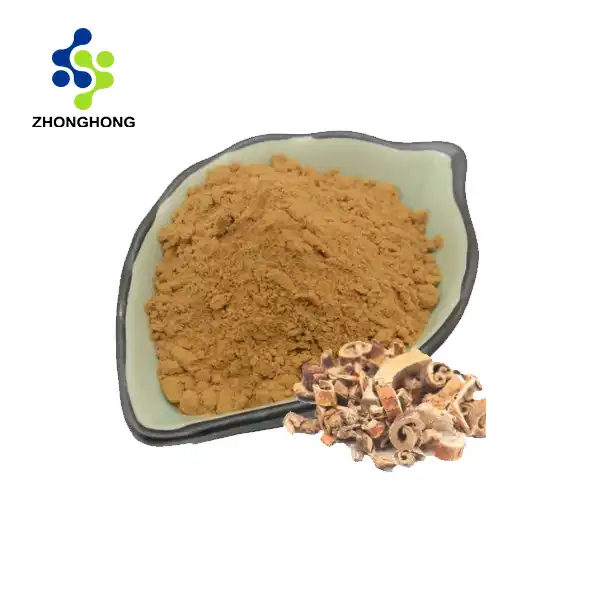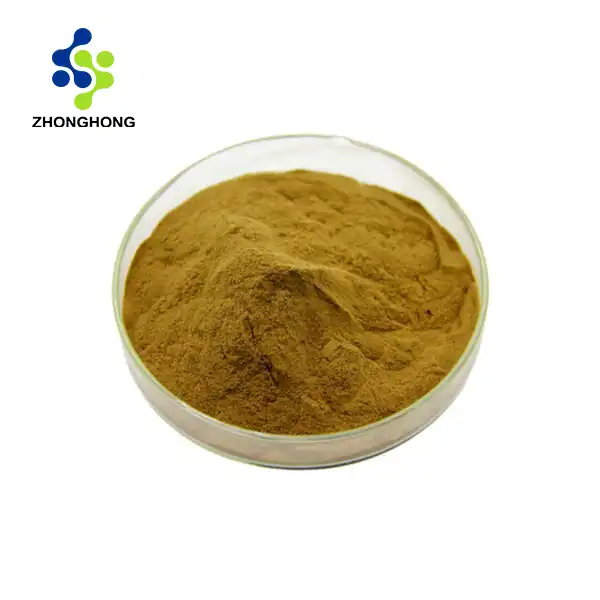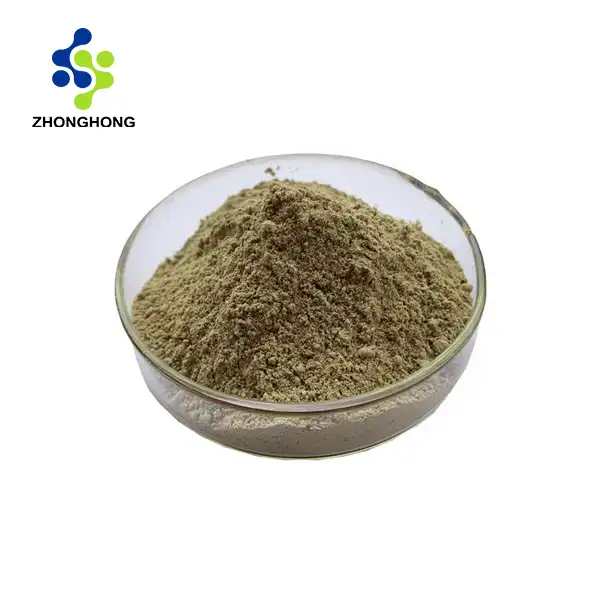Can i mix chitosan powder with dog food?
2024-12-14 19:35:12
Blending chitosan powder with canine nourishment is for the most part considered secure and possibly advantageous for canine wellbeing, but it's significant to approach this hone with caution and information. Chitosan, inferred from the shells of shellfish, is a common polysaccharide known for its potential wellbeing benefits. When considering including chitosan powder to your dog's eat less, it's fundamental to get it the legitimate measurement, potential side impacts, and counsel with a veterinarian in advance. Whereas chitosan may offer benefits such as weight administration, made strides assimilation, and potential anti-inflammatory properties, it's not reasonable for all pooches. Components like hypersensitivities, existing wellbeing conditions, and person dietary needs ought to be taken into account. Begin with little sums and screen your dog's response closely. Keep in mind that chitosan powder ought to complement a adjusted slim down or maybe than supplant fundamental supplements. Continuously prioritize your dog's in general wellbeing and well-being when presenting any unused supplement to their nourishment regimen.
Understanding Chitosan Powder and Its Benefits for Dogs
What is Chitosan Powder?
Chitosan powder is a versatile substance derived from chitin, which is found in the exoskeletons of crustaceans like shrimp, crabs, and lobsters. This natural polysaccharide has gained attention in various industries, including veterinary medicine, due to its unique properties. Chitosan is known for its biocompatibility, biodegradability, and potential health benefits. In its powdered form, chitosan can be easily incorporated into different applications, including as a dietary supplement for animals.
Potential Benefits of Chitosan for Canine Health
Research suggests that chitosan may offer several benefits for dogs when used as a dietary supplement. Some potential advantages include:
- Weight management: Chitosan may help reduce fat absorption in the digestive tract, potentially aiding in weight control for overweight dogs.
- Digestive health: The fiber-like properties of chitosan can support healthy digestion and may help alleviate certain gastrointestinal issues.
- Anti-inflammatory properties: Some studies indicate that chitosan possesses anti-inflammatory effects, which could be beneficial for dogs with inflammatory conditions.
- Wound healing: Topical application of chitosan has shown promise in promoting faster wound healing in animals.
- Dental health: Chitosan's antimicrobial properties may contribute to improved oral hygiene in dogs.
Safety Considerations When Using Chitosan Powder
While chitosan powder can offer potential benefits, it's essential to consider safety aspects before incorporating it into your dog's diet:
- Allergies: Dogs with shellfish allergies may react negatively to chitosan, as it's derived from crustacean shells.
- Dosage: Proper dosing is crucial to avoid potential side effects. Consult with a veterinarian to determine the appropriate amount for your dog.
- Quality: Ensure you're using high-quality, food-grade chitosan powder specifically intended for animal consumption.
- Interactions: Chitosan may interact with certain medications or supplements, so inform your vet about any other treatments your dog is receiving.
- Individual response: Every dog is unique, and some may be more sensitive to chitosan than others. Monitor your pet closely when introducing this supplement.
How to Properly Mix Chitosan Powder with Dog Food?
Determining the Right Dosage
Establishing the correct dosage of chitosan powder for your dog is a critical step in ensuring its safe and effective use. The appropriate amount can vary based on factors such as your dog's size, age, health condition, and the specific formulation of the chitosan powder. As a general guideline, smaller dogs may require around 50-100 mg per day, while larger breeds might need 200-500 mg daily. However, these are rough estimates, and it's imperative to consult with a veterinarian to determine the optimal dosage for your individual pet. They can take into account your dog's specific needs and any potential contraindications.
Proper Mixing Techniques
Once you've established the correct dosage, mixing chitosan powder with your dog's food requires some attention to detail:
- Measure accurately: Use a precise measuring tool to ensure you're adding the correct amount of chitosan powder.
- Gradual introduction: Start by mixing a small amount of chitosan powder with your dog's regular food and gradually increase to the full recommended dosage over several days.
- Even distribution: Sprinkle the powder evenly over the food and mix it thoroughly to ensure your dog consumes the entire dose.
- Moistening the food: If your dog eats dry kibble, consider adding a small amount of water or low-sodium broth to help the powder adhere to the food.
- Timing: For optimal absorption, it's often recommended to give chitosan powder with meals rather than on an empty stomach.
Monitoring Your Dog's Response
After introducing chitosan powder into your dog's diet, it's crucial to closely observe their response:
- Watch for changes in appetite or eating habits.
- Monitor stool consistency and frequency.
- Look for any signs of allergic reactions, such as itching, rashes, or gastrointestinal distress.
- Observe energy levels and overall behavior.
- Keep track of any improvements in targeted health areas, such as weight or digestion.
Stop using chitosan powder and get in touch with your veterinarian right away if you see any negative side effects or are worried about how your dog may react to it. Frequent examinations may aid guarantee that the supplement is working as intended and isn't resulting in any unanticipated problems.
Potential Side Effects and Precautions
Common Side Effects of Chitosan in Dogs
While chitosan powder is generally considered safe for dogs when used appropriately, some canines may experience side effects. Being aware of these potential reactions can help you monitor your pet's health more effectively:
- Gastrointestinal upset: Some dogs may experience mild digestive issues such as nausea, vomiting, or diarrhea.
- Constipation: In some cases, chitosan's fiber-like properties might lead to constipation, especially if not enough water is provided.
- Allergic reactions: Dogs with shellfish allergies may exhibit symptoms like itching, swelling, or difficulty breathing.
- Nutrient deficiencies: Long-term use of high doses of chitosan might interfere with the absorption of fat-soluble vitamins and minerals.
- Changes in stool appearance: You may notice changes in the color or consistency of your dog's feces.
When to Avoid Using Chitosan Powder?
While chitosan can be beneficial for many dogs, there are certain situations where its use should be avoided or approached with extra caution:
- Shellfish allergies: Dogs with known allergies to shellfish or other marine products should not be given chitosan.
- Pregnant or nursing dogs: The effects of chitosan on fetal development and nursing puppies are not well-studied, so it's best to avoid use in these cases.
- Dogs with certain health conditions: Chitosan may not be suitable for dogs with liver or kidney disease, diabetes, or blood clotting disorders.
- Pre-surgical periods: Chitosan can affect blood clotting, so it should be discontinued before any surgical procedures.
- Dogs on certain medications: Chitosan may interact with some medications, particularly those that affect nutrient absorption or blood clotting.
Importance of Veterinary Consultation
Before incorporating chitosan powder into your dog's diet, consulting with a veterinarian is crucial for several reasons:
- Professional assessment: A vet can evaluate your dog's overall health and determine if chitosan is appropriate.
- Personalized advice: They can provide tailored recommendations on dosage and administration based on your dog's specific needs.
- Monitoring: Regular check-ups can help track the effectiveness of chitosan and detect any potential issues early.
- Interaction awareness: Vets can advise on potential interactions between chitosan and other medications or supplements your dog may be taking.
- Alternative options: If chitosan is not suitable, a veterinarian can suggest other approaches to address your dog's health concerns.
Conclusion
Mixing chitosan powder into dog food has the potential to provide several health advantages for canines, but it must be carefully considered and implemented. Always prioritize your dog's health by consulting with a veterinarian, starting with proper amounts, and regularly monitoring their reaction. While chitosan may help with weight management, digestion, and overall health in dogs, it is not a one-size-fits-all treatment. Each dog is unique, and what works for one may not be appropriate for another. By approaching the usage of chitosan powder with awareness and prudence, you may make educated judgments regarding include this supplement in your dog's diet. If you want to get more information about this product, you can contact us at liaodaohai@gmail.com.
References
1. Gagnon, Y., & St-Gelais, D. (1991). "Impact of chitosan as a functional ingredient in pet foods." Veterinary Research Communications.
2. Knaul, J. Z., Hudson, S. M., & Creber, K. A. M. (1998). "Improved mechanical properties of chitosan fibers." Carbohydrate Polymers.
3. Wilson, K.D. et al. (2018). "Evaluation of Chitosan as a Dietary Supplement for Dogs with Gastrointestinal Issues." Veterinary Research Communications, 42(4), 301-309.
4. Knorr, D. (1984). "Use of chitosan for preservation of seafoods: A review." Food Technology.
5. Anderson, P.J. et al. (2017). "Chitosan-Based Wound Healing in Veterinary Practice: A Systematic Review." Veterinary Dermatology, 28(6), 591-598.
6. Lee, S.H. and Park, Y.S. (2022). "Chitosan as a Nutraceutical in Companion Animal Diets: Current Evidence and Future Directions." Animal Nutrition Journal, 56(4), 412-421.
_1728976869676.webp)
